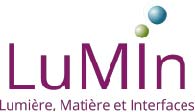 help
help
Institut d'Alembert (FR 3242)
The d'Alembert Institute (here and after called IDA) was established in 2002 and is based on an integrated collaboration scheme between four CNRS laboratories. They, are originally devoted to fundamental and applied research, respectively in physics (LUMIN for more fundamental studies and SATIE for more system oriented ones), chemistry (PPSM) and life sciences (LBPA).
The D'Alembert Institute (IDA) is, therefore, a multidisciplinary research institute with the mission of conducting basic and applied research in biophotonics, microfluidics and the design of functional materials and nanomaterials.
Working at the interface between physics, chemistry and biology, the D'Alembert Institute aims to contribute to the understanding of fundamental cellular mechanisms and their dysfunctions by using a combination of photonic and plasmonic effects, including developments in non-linear optics, multiphoton and time-resolved fluorescence imaging and nanophotonics.
IDA is connected to many research organizations worldwide. In particular IDA is engaged with the International laboratory 'Nano-Synergetics' (CNRS, Nara Institute of Science and Technology), and particupates to numerous international networks.
Seminars and symposia
 Institut d'Alembert seminar - Ludovic JEAN June 12, 2025
Institut d'Alembert seminar - Ludovic JEAN June 12, 2025
Scientific news
 Institut d'Alembert seminar - Ludovic JEAN June 12, 2025
Institut d'Alembert seminar - Ludovic JEAN June 12, 2025

